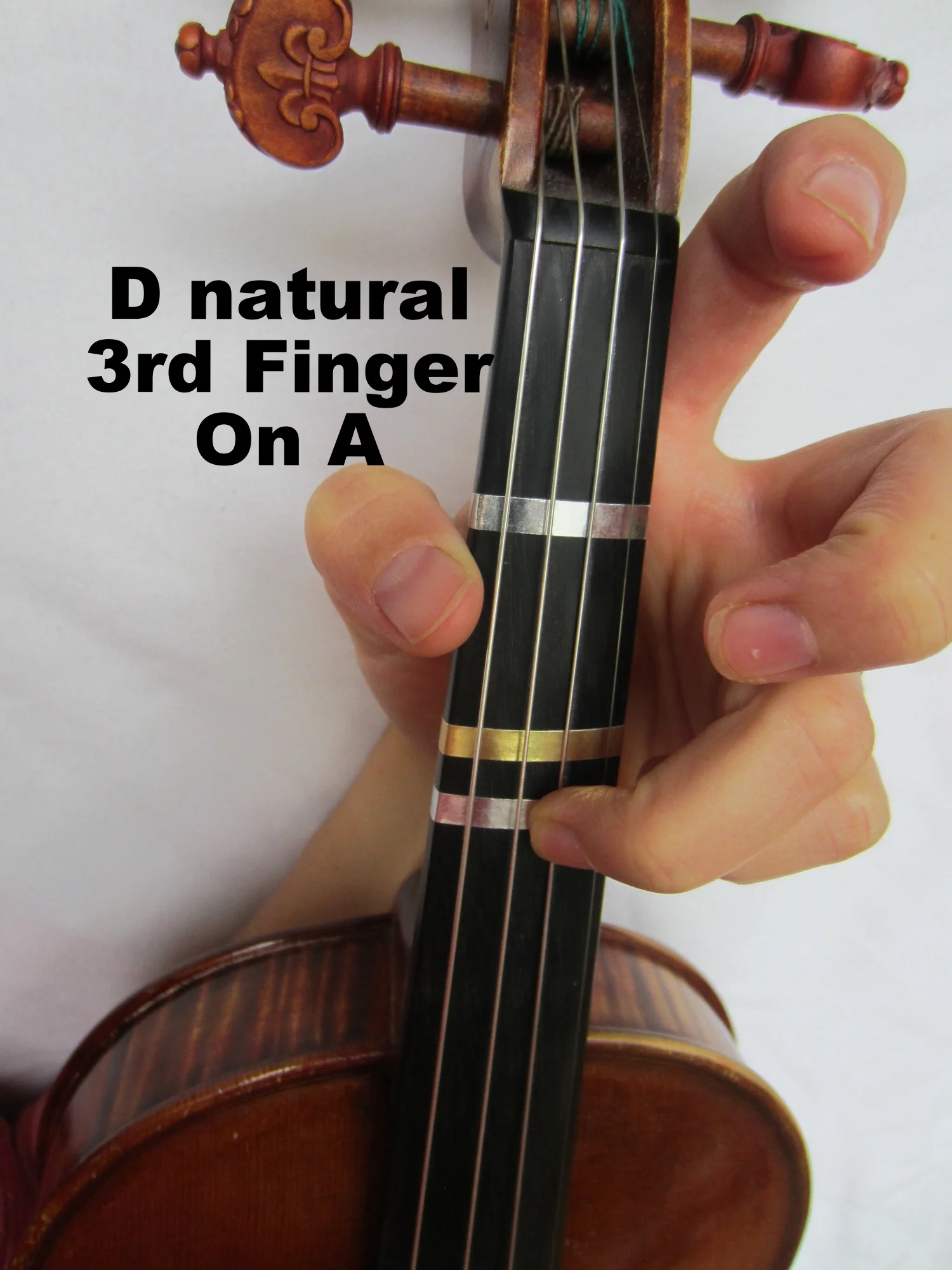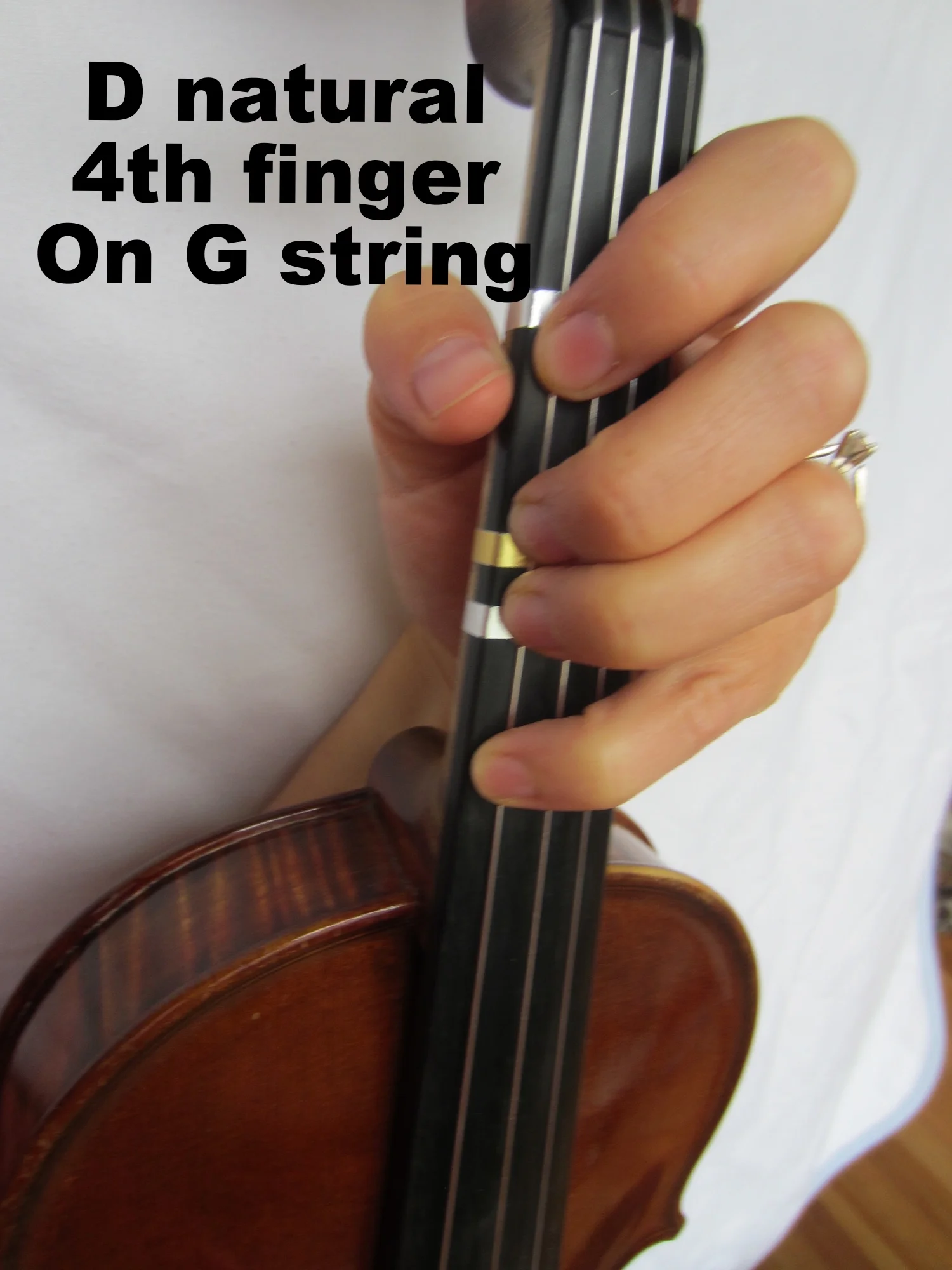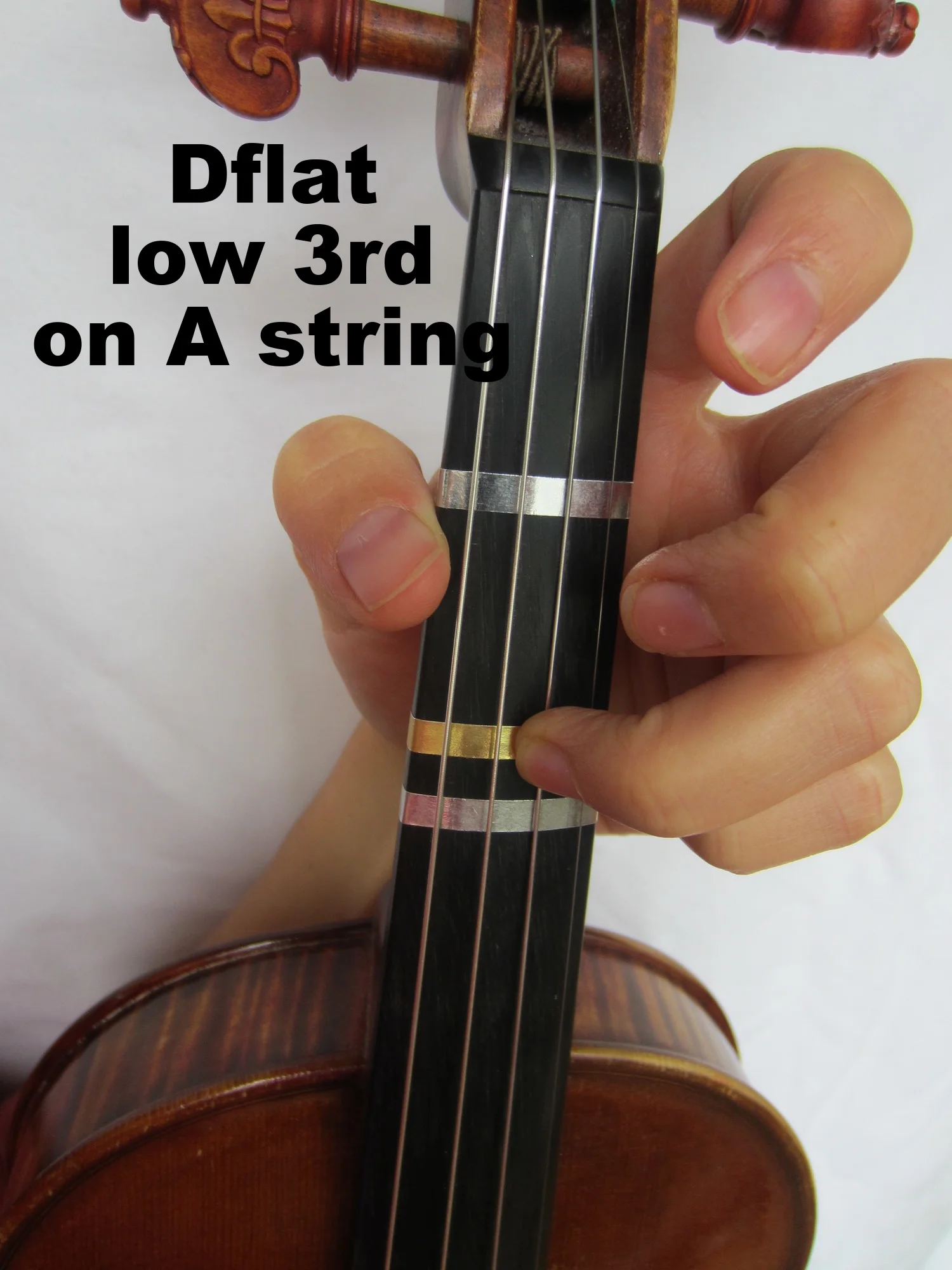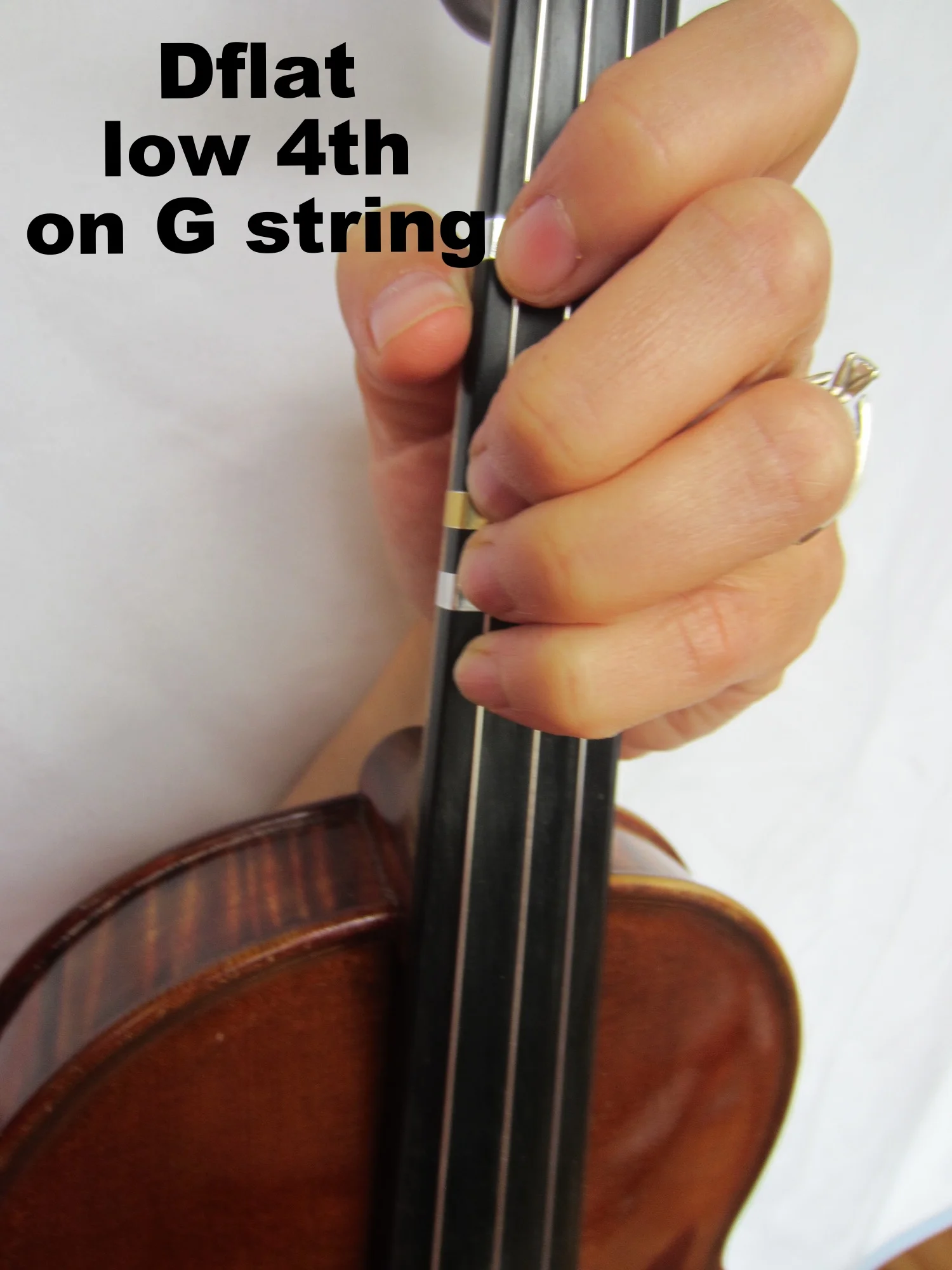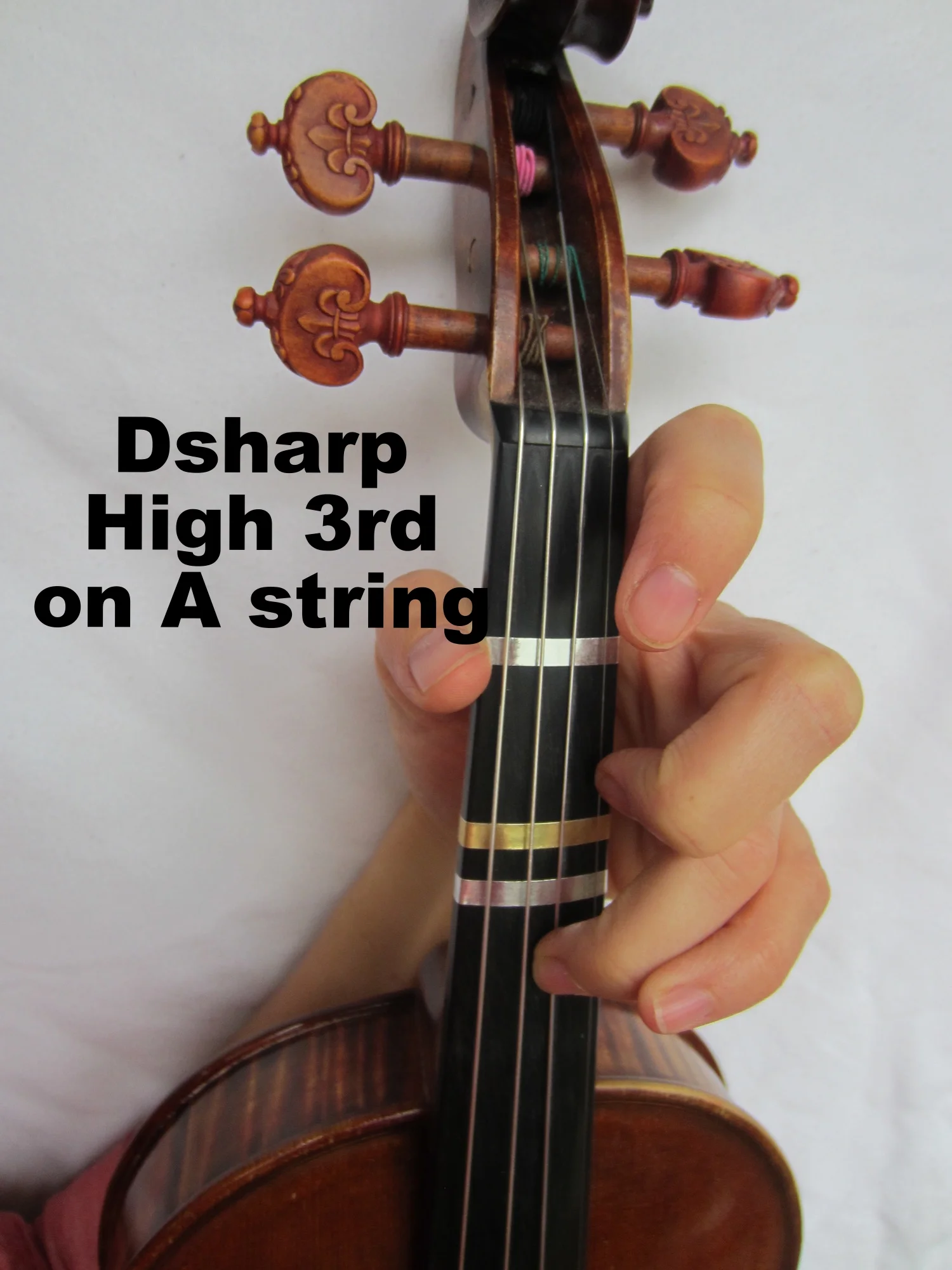Violin Fingering D Note
If you are already a little familiar with violin fingering, and musical notes, reviewing how to play notes by note name can be helpful. Or if you are a parent of a violinist, and your student comes across a note they don't know how to play, use these pictures to help them put their finger in the right place. T
The following fingering pictures are for D notes in first position. More detailed written instructions are below the pictures.
D on the G String - This note sounds the same as open D. Use your fourth finger a whole step away from the third.
D on the A String. - This note is played with your third finger. If C is sharp, and your second finger is high, then your third finger will almost touch your second (as pictured below). If C is natural then your third finger will be a whole step away from your second finger.
D Sharp on the A String</strong>. When the D is sharp you slide your third finger up a half step. This will be a stretch, make sure you are keeping your second finger apart from your third. Pictured below is a D Sharp with a C Sharp below it.
As a general rule of thumb, whole notes will 'feel' like they are about one inch away from each other. Half note fingers should practically be touching each other.
D Flat Violin Fingering - D Flat in beginning music is uncommon. D Flat can be played the same way a C Sharp would, or by simply sliding your finger down half a step from where you are playing D Natural.
Tune your D Note -
For Beginning and Intermediate Students - To check the intonation of the D Note you are playing with your finger, compare it with open D String. If your note pitch sounds higher than the D string, slide your finger towards the scroll. If your note sounds lower than the D string, slide your finger towards the bridge.
For Advanced Students - When a D Note (played on a different string than the D string) is perfectly in tune it will cause a vibration in your open D string. This vibration is hard to find or hear when you first practice looking for it. Learning how to detect it easily though will make a huge difference in your intonation. So, give it a try, and watch your intonation improve!


